What is it like to do a European Industrial PhD degree?

Hello, my name is Kelly Blust, and I am a PhD-student working at KTH (Royal Institute of Technology) in Stockholm, Sweden. I was born in Dresden, Germany and I completed my education in Germany at the University of Rostock (Bachelor in Science Medical in Biotechnology) and Halle (Master of Science in Pharmaceutical Biotechnology). I started my PhD at KTH in November 2019, in the group of Prof. My Hedhammar. I’m enjoying Sweden very much: I like walking with my dog on the pure Swedish landscape – it's a perfect way to relax after work – and swimming in the sea during the summer, which is warmer than you'd think. During the cold and dark winter, I enjoy cross-country skiing in the north of Sweden, where I was lucky enough to see reindeers!
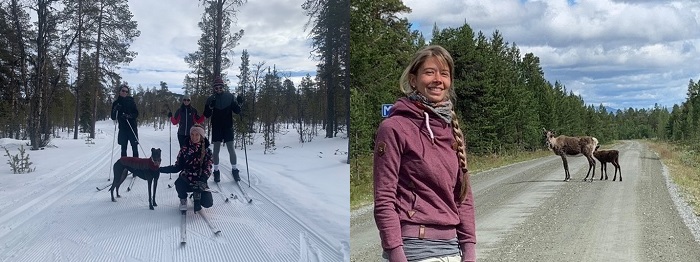
The STACCATO Programme
STACCATO is a European Industrial Doctorate programme for enhancing upstream biopharmacuetical manufacturing process development through single cell analysis. It is funded under the Marie Sklodowska-Curie Actions of Horizon 2020. STACCATO combines 11 Early Stage Researchers (ESR) within 6 host institution all over Europe. Most of the ESR are based in industry – BD in Limerick, NIBRT in Dublin, iBET in Portugal, Paul-Ehrlich Institute in Germany, and TILT Biotherapeutics in Finland – except my PhD-position and my colleague's Brian Ladd, who are both based at the KTH in Stockholm. We are a great team focusing on the production of recombinant proteins, oncolytic virus and recombinant vaccines, as well as other projects focusing on cell therapy, e.g., with stem cells and CAR-T cells, and gene therapy. All projects combine single cell transcriptome analysis using the BD RhapsodyTM. What is this? The BD RhapsodyTM is a method to capture and analyze the transcriptome of every single cell by adding magnetic beads, which bind all mRNAs.
Doing an Industrial PhD requires spending at least 50% of the PhD time in a non-academic sector. For my project, I have secondments at Spiber Technologies AB, which is the company producing recombinant spider silk, and at NIBRT, focusing on the bioinformatic analysis of single cell analysis. STACCATO provides specific training that will helps us to build industry relevant skills and practical competencies. We had an entrepreneurship course to help us get an entrepreneurial mindset by establishing a start-up and by finding and solving emerging problems. During the course we came up with ideas for founding our own BioTech company and presented it at a BioTech pitching event.
We have annual meetings and our first meeting was in Dublin, at a NIRBT get-together, but the meeting also focused on recombinant therapeutic protein production. The second annual meeting was held online due to Covid-19, with a focus on bioprocess development based at KTH. The third annual meeting was held by iBet in Portugal, with topics on gene therapy and vaccines and career development. Next year, STACCATO will organize a single cell workshop open for everyone. Overall, doing an Industrial PhD gives you a broad scientific knowledge, scientific communication skills, and excellent networking, which is the best preparation for your future! For more information on the STACCATO programme, listen to the STACCATO blog. If you are interested in doing an industrial PhD funded by the European Union, I found my position on the EURAXESS website.
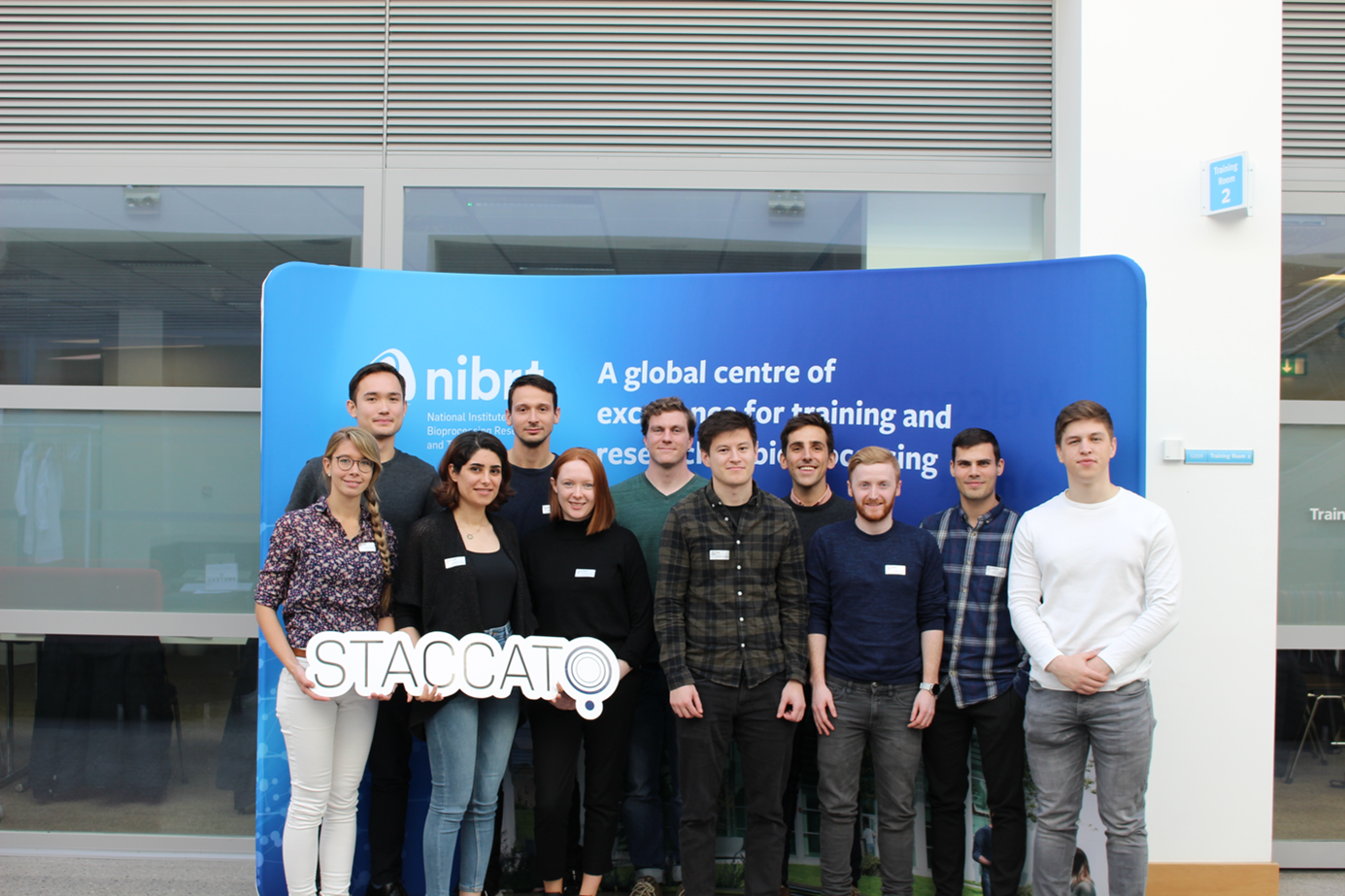
My project within STACCATO
My PhD topic is about the differentiation of human embryonic stem cells to pancreatic tissue in a 3D cell culture system based on recombinant spider silk. The aim of the project is to develop methods to carry this out. I will perform validation on differentiated pancreatic tissue using single cell analysis to establish a protocol for maturation of the different pancreatic cells (alpha, beta, etc). STACCATO gives me this great opportunity to use a novel technique of single cell transcriptome analysis – BD RhapsodyTM – to analyse gene expression of every single cell in differentiated pancreatic cells. I’m looking forward to go to NIRBT in Dublin for my secondment, to learn more about bioinformatics. I am very glad to be a part of this European Industrial PhD program because of its many interesting courses (e.g., about Entrepreneurship) and good networking opportunities to find collaborations and friends for life!
Falling Walls Lab Marie Skłodowska-Curie Actions (MSCA) Competition
“Which are the next walls to fall in science and society? Discover future breakthroughs!” #Falling Walls
The Falling Walls Lab MSCA Competition is a world-class pitching event, networking forum, and global platform for outstanding innovators from multidisciplinary research fields. It’s part of the international Falling Walls Labs occurring all over the world and including the Falling Walls Marie Skłodowska-Curie Actions (MSCA). At the Falling Walls MSCA Lab, 15 candidates – MSCA Fellows from across a wide array of scientific disciplines – competed for a spot at the global Falling Walls Lab Finale in Berlin (7-9 November 2021), for a chance to become a Breakthrough winner in Emerging Talents. All of the 15 candidates address with their research the greatest global challenges our time in health care, climate, engineering technologies and environmental issues.
I was one of the 15 Marie Curie Fellows selected to present their innovative idea at the Falling Walls MSCA in 2021 and I would like to tell you more about this exceptional experience. We all had the chance to participate in a group coaching session with Alexandra Smith, from Debatrix, about storytelling based on TED talks, which was very helpful to prepare the pitch. Additionally, all of us had an individual coaching session to improve the speech for the pitch. The coach helped me to present myself better and gain more confidence in myself and my research, as well as learn how to talk about research in a way that people can relate to. So we got quite a lot of support!
Breaking the Wall of Curing Diabetes
In my pitch, I presented a “Novel cell therapy to cure Diabetes using Spider silk”. In this process, pancreatic islets are generated from induced pluripotent stem cells and incorporated into a 3D network of spider silk foams, for transplantation into diabetic patients. This 3D network protects the pancreatic islets and gets mature pancreatic cells to enhance insulin and glucagon production. With this personalized treatment, a patient would be able to produce insulin on their own.
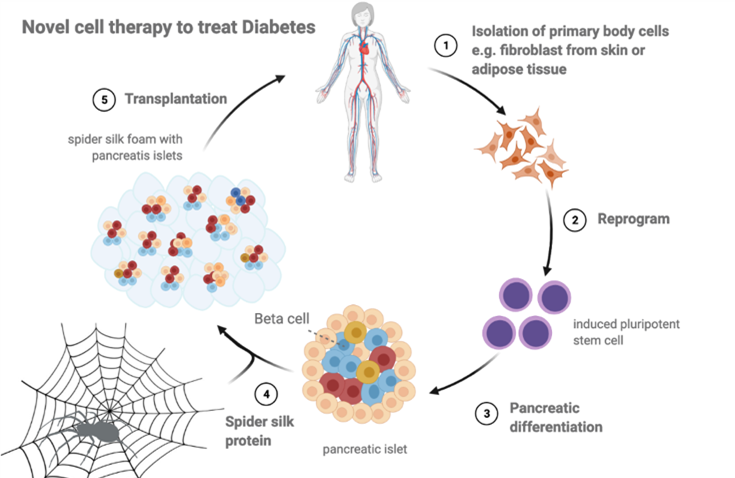
The Falling Walls MSCA was a thrilling competition and the first place went to Giulia Rocco, who works on a new way to analyse the cerebellum. The second place went to Anwesh Bhattacharya, who develops an infrared camera using complex scattering media to look through walls. Both will continue to compete for the Breakthrough winner in Emerging Talents in Berlin. I encourage everyone to apply for a Falling Walls lab competition next year and take this great opportunity to share your research with the public! The full event can be watched on https://fwlmsca2021.eu/
Photo by Jason Goodman on Unsplash
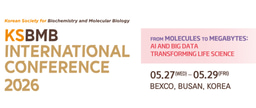



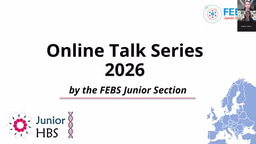
Join the FEBS Network today
Joining the FEBS Network’s molecular life sciences community enables you to access special content on the site, present your profile, 'follow' contributors, 'comment' on and 'like' content, post your own content, and set up a tailored email digest for updates.